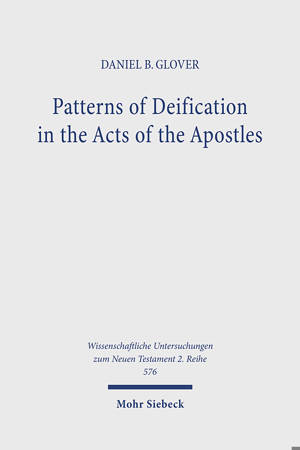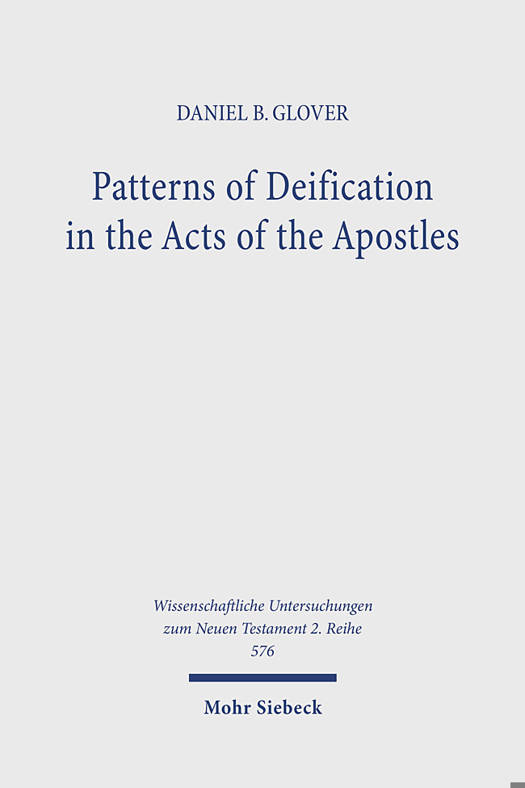
- Afhalen na 1 uur in een winkel met voorraad
- Gratis thuislevering in België vanaf € 30
- Ruim aanbod met 7 miljoen producten
- Afhalen na 1 uur in een winkel met voorraad
- Gratis thuislevering in België vanaf € 30
- Ruim aanbod met 7 miljoen producten
Zoeken
Patterns of Deification in the Acts of the Apostles
Daniel B Glover
Paperback | Engels | Wissenschaftliche Untersuchungen zum Neuen Testament 2. Reihe | WUNT II | nr. 576
€ 104,45
+ 208 punten
Omschrijving
Five times throughout the course of Luke's narrative in Acts, an individual character is identified as (a) god. Rarely have scholars read these deification scenes within their narrative and historical settings with sufficient care. With regard to the narrative setting, scholars working on the deification scenes tend to take one or another as normative and read the remaining acclamations in light of a particular interpretation of that one pericope. However, such reading strategies run aground when they arrive at the final acclamation (28:1-10), which breaks the exegetical bow of the interpretive ship. In this study, Daniel B. Glover evaluates the deification scenes in the Book of Acts by locating them within the broader ancient Mediterranean context of deification. He offers a fresh reading of Acts that situates each of the five scenes within a distinct literary pattern recognizable to its earliest readers.
Specificaties
Betrokkenen
- Auteur(s):
- Uitgeverij:
Inhoud
- Aantal bladzijden:
- 334
- Taal:
- Engels
- Reeks:
- Reeksnummer:
- nr. 576
Eigenschappen
- Productcode (EAN):
- 9783161618888
- Verschijningsdatum:
- 1/10/2022
- Uitvoering:
- Paperback
- Formaat:
- Trade paperback (VS)
- Afmetingen:
- 231 mm x 155 mm
- Gewicht:
- 4939 g

Alleen bij Standaard Boekhandel
+ 208 punten op je klantenkaart van Standaard Boekhandel
Beoordelingen
We publiceren alleen reviews die voldoen aan de voorwaarden voor reviews. Bekijk onze voorwaarden voor reviews.











